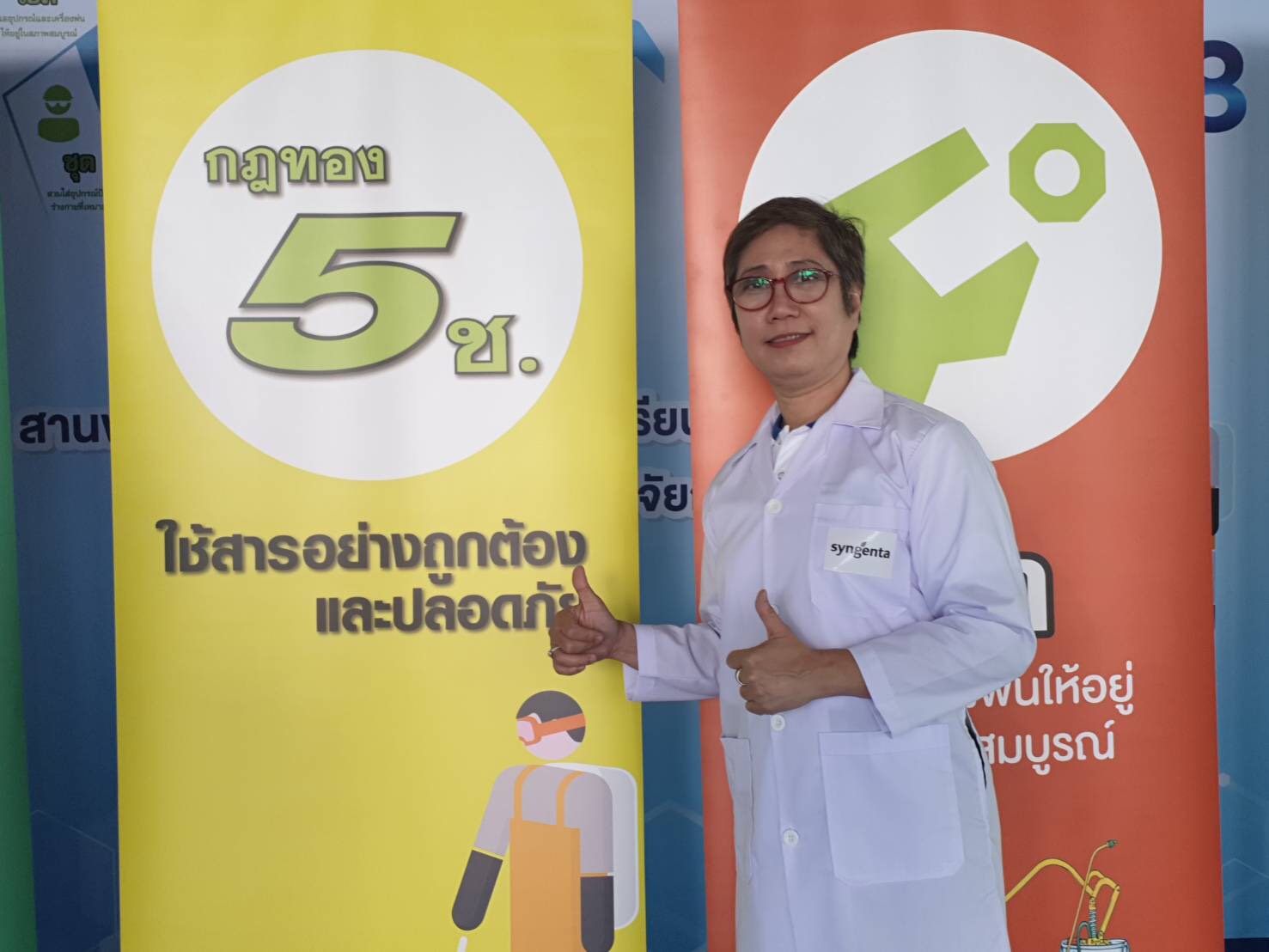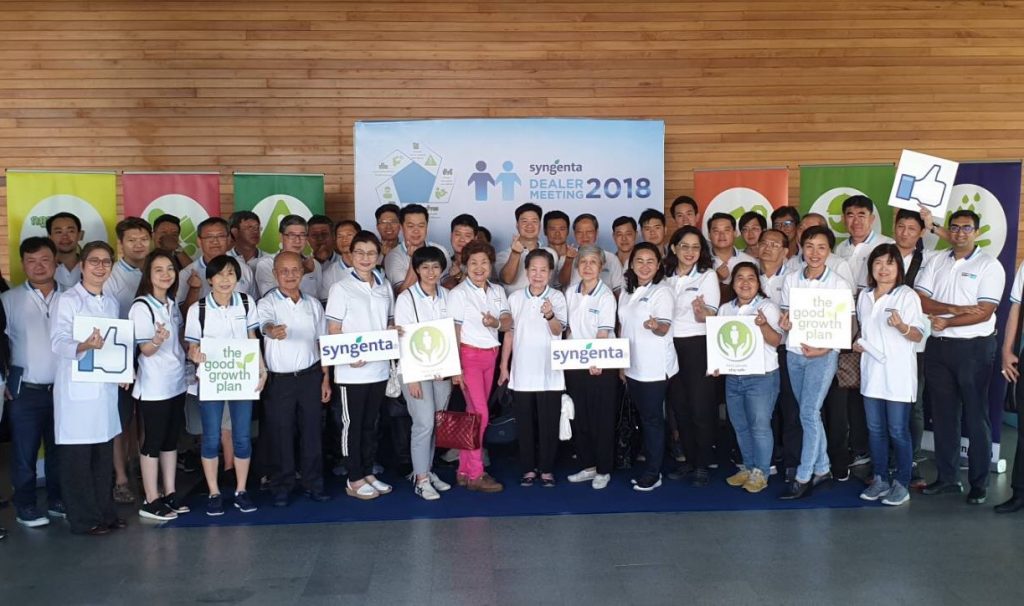Syngenta is collaborating with stores across the country to carry out its “Learning Centre for Safety” initiative, championing five principles that aim to impart knowledge to farmers on balancing the use of facilities and resources for cultivation with the crucial role of looking after the land and its ecosystem.
Ms. Watchareeporn Panpoompruek, “stewardship” and director of the Business Sustainability Department of Thailand Syngenta Crop Protection Co., Ltd, said the company – which has resolutely upheld the principle of business sustainability – has created a Stewardship program to analyze, examine and impart knowledge and advice to farmers tending and protecting their crops in order to maintain steady production, create continuous profits and at the same time reduce negative health and environmental impacts. “Syngenta has formulated operations for the second half of the year by organizing a campaign to promote comprehensive knowledge by opening the Learning Centre for Safety in the southern region in collaboration with stores selling agricultural products and services,” he added.


The Learning Centre for Safety, under Syngenta Stewardship initiatives, adopts five standard easy-to-understand-and-remember principles as a tool to impart knowledge: 1) Read the label to understand how to use the products; 2) be careful in transporting, mixing, spraying and storing products; 3) check and maintain devices and spray equipment to ensure they are in good condition; 4) wear suitable clothes and protective gear; and 5) always clean your body, take good care of your health.
This is part of Syngenta’s Good Growth Plan to be implemented by 2020. Under the plan, the company expects at least 50 million rai of Thai agricultural land – or 33 per cent of the total 149 million rai – to be suitable for agriculture and provide quality produce. Farmers can be assured of good health while living in a safe and better environment.

“An important objective of opening the Learning Centre for Safety is to create knowledge and understanding of judicious cultivation methods by minimizing the negative impacts on farmers’ health and the overall environment. The project will first impart knowledge to 80 major stores and subsequently expand to 1,600 branches across the country, which can in turn pass on the knowledge to as many as 500,000 farmers. An important strategy under this plan is gaining support from stores because they are not only distribution channels of facilities and resources for cultivation but also “companions” to farmers. It is therefore easier to impart knowledge since they use the same level of language to communicate to reach an understanding with farmers across the nation. They can help ensure farmers safely and efficiently use chemical substances, Ms. Watchareeporn added.



